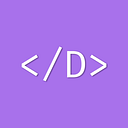JavaScript Made Simple: Your Cheat Sheet to Programming Success!
If you’re new to programming with JavaScript or just need a refresher, having a JavaScript cheat sheet can be a great reference guide. Whether you’re a beginner or an experienced developer, having a cheat sheet handy can help you quickly find the syntax or concepts you need to code your next project.
In this blog post, we’re going to provide you with a comprehensive JavaScript cheat sheet that will help you become a better programmer. From basic syntax and statements to advanced concepts, our cheat sheet covers a variety of topics that will help you get up to speed with the language.
Basic Syntax
The basic syntax of JavaScript is quite simple and straightforward. Here are some of the most important elements to know:
Variables: Variables are used to store data that can be used in your program. The syntax for declaring a variable is: var variableName = value;
Operators: Operators allow you to manipulate and compare values. The most common operators are +, — , * , /, %, and ++.
Conditionals: Conditionals allow you to check for certain conditions and execute code based on the result. The most common conditionals are if, else, and switch.
Functions: Functions allow you to execute code at a certain point in the program. The syntax for declaring a function is: function functionName(){ //code to execute }
Objects: Objects are used to store data and functions in a single variable. The syntax for declaring an object is: var objectName = { //properties and methods };
Events: Events allow you to trigger code when a certain action occurs. The most common events are onclick, onload, and onmouseover.
Advanced Concepts
Once you have a handle on the basics of JavaScript, there are a few more advanced concepts you should be familiar with. Here are some of the most important:
Prototypes: Prototypes allow you to add methods and properties to existing objects. The syntax for declaring a prototype is: Object.prototype.methodName = function(){ //code to execute };
Closures: Closures allow you to create private variables within a function. The syntax for declaring a closure is: (function(){ //code to execute })();
Promises: Promises allow you to write asynchronous code that is easier to understand. The syntax for declaring a promise is: new Promise(function(resolve, reject) { //code to execute });
Classes: Classes allow you to create objects based on a certain model. The syntax for declaring a class is: class ClassName { //code to execute }
Modules: Modules allow you to organize your code into separate files. The syntax for declaring a module is: export default function(){ //code to execute };
Conclusion
Having a JavaScript cheat sheet handy can be a great reference guide for beginner and experienced developers alike. With this cheat sheet, you can quickly find the syntax or concepts you need to code your next project. From basic syntax and statements to advanced concepts, our cheat sheet covers a variety of topics that will help you get up to speed with the language.
👉Follow us on Twitter!
Happy Hacking!
